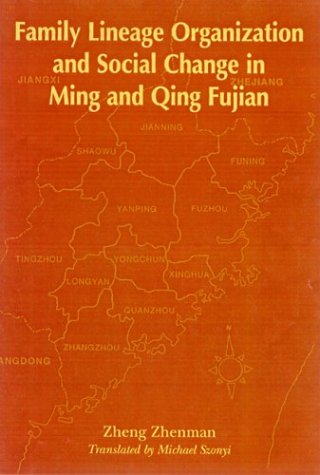
Family Lineage Organization and Social Change in Ming and Qing Fujian
(郑振满《明清福建家族组织与社会变迁》)
Author: Zheng Zhenman
Translator:Michael Szonyi
Hardcover: 388 pages
Publisher: University of Hawaiʻi Press (January 1, 2001)
Language: English
ISBN: 9780824823337
Description
This work is the result of more than a decade of research on the Chinese household and lineage in the southeastern province of Fujian during the Ming and Qing period (1368-1911). It offers new interpretations of the Chinese domestic cycle, the relationship between household and larger kinship groups, and the development of lineage society in south China. Using hundreds of previously unknown lineage genealogies, stone inscriptions, and land deeds, Zheng Zhenman provides a candid view of how individuals and families confronted the crucial issues of daily life: how to minimize taxes or military conscription; how to balance the ideological imperatives of ancestor worship with practical concerns; how to deal with the problems of dividing the household estate. His research leads to an exploration of issues such as the relation of state to society and the compatibility of Chinese culture and capitalism.
This complete translation allows access to some of the most exciting new research being done in Chinese social history. Zheng's book draws on important materials largely unknown to Western scholars, comes to novel conclusions about society in late imperial China, and illustrates the importance of the non-Western perspective in studying the history of the world outside the West.
Contents
List of Illustrations
Ming and Qing Reign Periods
Terms for Measures and Money
Translator’s Preface
1. Introduction
2. Family Structure and the Household Development Cycle
3. A Basic Typology of Lineage Organization
4. The Development Process of Lineage Organization
5. Family Lineage Organization and Social Change
6. Conclusion
Notes
List of Characters
Bibliography
Index
![]() Family Lineage Organization and Social Change in Ming and Qing Fujian.pdf
Family Lineage Organization and Social Change in Ming and Qing Fujian.pdf

